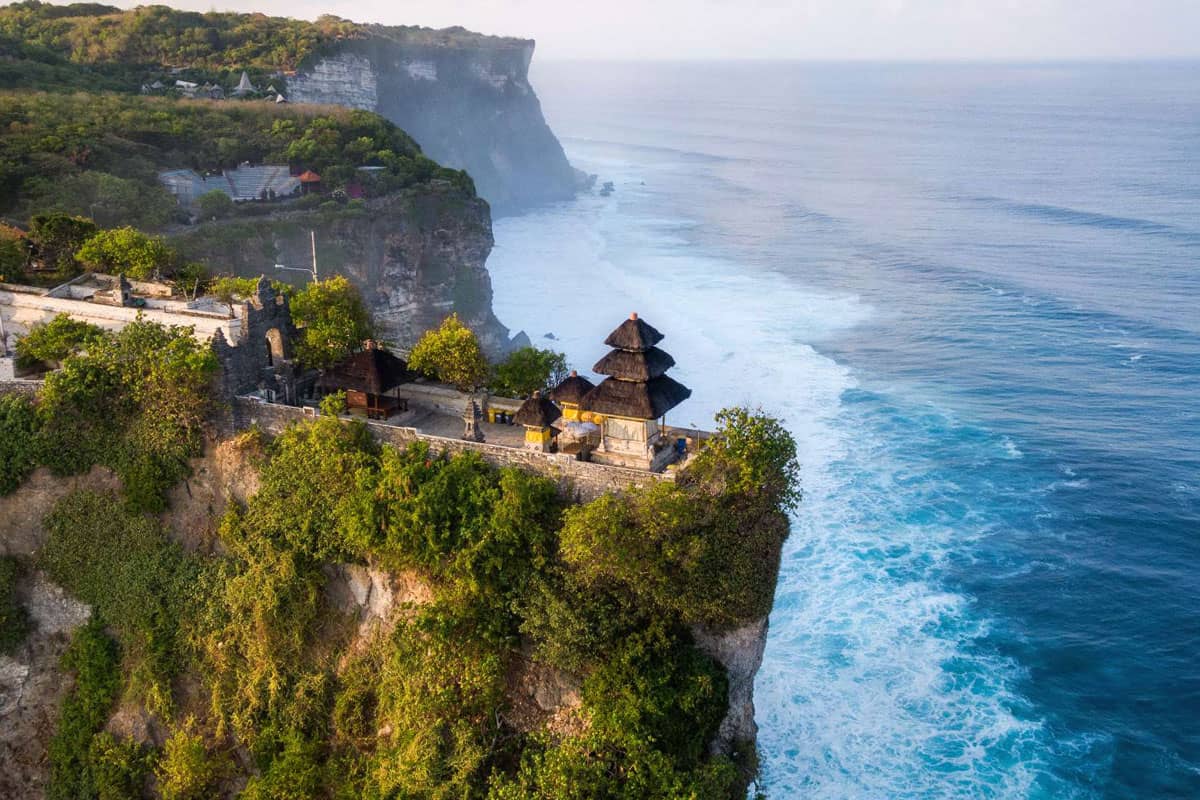Ice cold Bintangs. Panoramic clifftop views. Hipster cafes. Perfectly feathering waves. Though our heads may be full of joyous stereotypes, Bali holds a special – authentic – place in many Australians hearts (and itineraries). Many have even moved to Island of the Gods permanently.
While Border Force figures show 200,000 people have returned to Australia since March 21, there are a number of Australians who have decided to ride out the pandemic in Bali.
As the Sydney Morning Herald reports, some Australians, like 53-year-old Tim Ryan, don’t plan on repatriating any time soon – even after being out of work for a number of months.
“My family live here and I believe in Bali,” Ryan told the Sydney Morning Herald. “My wife is Indonesian. Bali is home.”
Ryan told the Sydney Morning Herald he is “a little bit concerned” about coronavirus, but “the situation is not too bad.”
“If I am really sick, health insurance will allow me to go back to Australia to seek medical help.”
“If you look at the situation now, the beach is open. … I believe that the Balinese government and health system has got it under control and they are taking precautions to keep it under control, so I feel safe,” he added.
View this post on Instagram
Speaking of the beach being open (after closing for a period of time as confirmed cases soared), the Instagram account, Surfers Of Bali (SOB), has been making waves of late on social media, giving wing-clipped Australians even harder FOMO than usual.
SOB has posted tantalising videos of Bali for years. And their aesthetic hasn’t changed in the last few months. But the account has captured a rare moment in history that may never be repeated: what Balinese coastal areas and surf spots look like with no international visitors (visitors are set to return in September) – just expatriates and locals.
View this post on Instagram
From Uluwatu – the south-western tip of the Bukit peninsula – to the iconic surf spots at Padang Padang and Bingin, as well as city breaks like Kuta and rice paddy backed beaches like Canggu, SOB has captured, one might argue, every Australian surfer’s dream.
That’s not to say lineups are now uncrowded. But they certainly look more relaxed.
It’s not just the perfect waves that have convinced some Australians to stay in Bali though. As Ryan told the Sydney Morning Herald, the cost of living is another factor in the decision: “I could live in Bali for another six months easily without working.”
“Rent is cheaper here, living expenses are cheaper and I am not picky. I can eat any Indonesian food. A small bottled water in Australia could cost 10 times [what it does] in Bali; a simple dish like fried rice or whatever could cost you $10 a plate” compared to as little as $1 in Bali.”
Unless you’re already over there though, don’t hold your breath on being able to go any time soon.
smarttraveller.gov.au has issued the following in respect to Australians thinking of travelling: “There’s a ban on overseas travel from Australia. You can’t leave Australia unless you get an exemption from the Department of Home Affairs.”
“If you’re overseas and wish to return to Australia, we continue to encourage you to plan your travel home. However, be prepared for possible delays.”
“When you arrive in Australia you must quarantine for 14 days at designated facilities in your port of arrival. You may be required to pay for the costs of your quarantine. View individual State and Territory Government information,” smarttraveller.gov.au adds.
“If you’re staying overseas, make plans to stay for an extended period. Follow the advice of local authorities and minimise your risk of exposure to COVID-19. Stay in touch with family and friends so they know you’re safe.”
